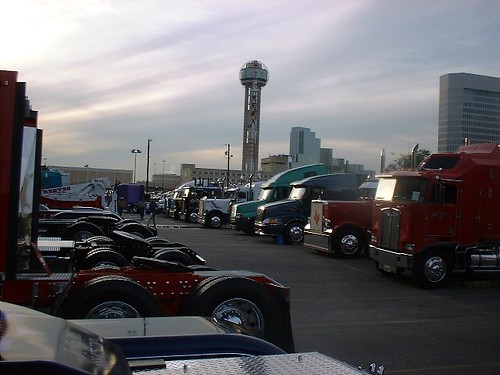Autonomous trucks making progress as Kansas becomes the 38th state to allow them on state highways, Robert Poole reports.
In July, Kansas became the 38th state to enact a law that allows the deployment of fully autonomous vehicles on state highways (but it applies only to vehicles up to 34,000 pounds, thereby excluding Class 8 big rigs that are the mainstay of long-distance trucking). The 38 state laws range from allowing full deployment and operation for all types of trucks to those that allow only testing with safety drivers.
While there are no Class 8s in regular operation on major highways with no one on board yet, regular operations of such rigs with safety drivers are taking place, with major carriers teaming with autonomy providers such as these:
- J.B. Hunt Trucking with Waymo automation
- U.S. Express with Embark automation
- DHL Supply Chain with Volvo Autonomy
- FedEx with Aurora automation
- UPS with TuSimple automation.
Hardly any truck automation developers plan to build autonomous trucks. Instead, they are partnering with the major original equipment makers (OEMs) such as Navistar (partnering with TuSimple automation), Daimler (with Torc automation), and both Paccar (maker of Kenworth and Peterbilt) and Volvo Trucks (with Aurora automation).
Also interesting is the emerging business model for long-haul automated trucking. FleetOwner reported in Jan. 2022 that both Aurora and Torc are moving toward a model in which a trucking company buys the Class 8 truck with automation as an option. If they buy it that way, the automation company will manage the autonomous portion of its operations, mostly on major highways such as Interstates. Aurora’s CFO Richard Tame explained their business model, which depends on avoiding the cost of a human driver in the truck. As he told FleetOwner, “We don’t have a commercial product with a driver because the sensors [lidar, radar, and camera] are so expensive. Having an expensive kitted-out truck with a safety driver is not a product.”
The trucking company would pay a per-mile fee for Aurora to operate the truck, which he estimated would be about half the cost of drivers. Hence, a win-win for both the trucking company and the automation company.
Yet despite the continued progress with on-road testing for commercial carriers, glitches still occur. The Wall Street Journal reported on Aug. 2 that a TuSimple big rig with a safety driver and engineer on board made a sudden left turn, cutting across I-10 and crashing into a concrete barrier. The article reported that TuSimple’s internal report blamed the accident on one of the onboard employees failing to reboot the automation system before turning the system on, leaving in place an outdated left-turn command. That this kind of error could occur in one of truck automation’s leading companies suggests that we are not yet ready for fully autonomous commercial service.
Originally published by the Reason Foundation. Republished with permission.
For more Budget & Tax News.











